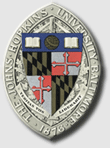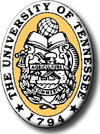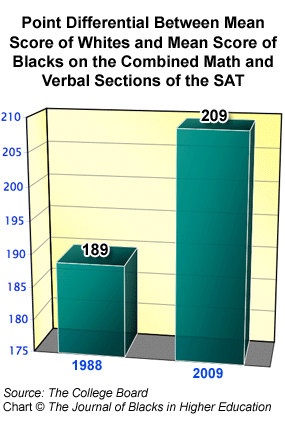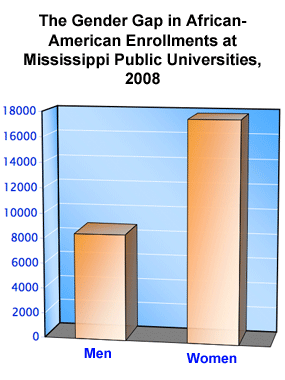Study Finds That Merit Aid at Private Colleges Has a Dampening Effect on Both Racial and Socioeconomic Diversity
 A new study published by the Cornell Higher Education Research Institute finds that highly selective private colleges and universities that chose to offer merit-based financial aid have over the past decade enrolled fewer low-income students. These colleges have also enrolled fewer black students, according to the report. A new study published by the Cornell Higher Education Research Institute finds that highly selective private colleges and universities that chose to offer merit-based financial aid have over the past decade enrolled fewer low-income students. These colleges have also enrolled fewer black students, according to the report.
Many of these private colleges have used merit-based aid to lure highly qualified, upper-middle-class students away from Ivy League and other top-tier institutions that offer no merit-based scholarships.
Amanda L. Griffith, the author of the study, is an assistant professor of economics at Wake Forest University. Using data from The College Board on 133 private colleges and universities that offer financial aid, she found that from three to five years after these colleges began to offer merit-based scholarships, the number of Pell Grant students began to decline. After a decade, the percentage of total enrollments that were Pell Grant recipients was an average of five percentage points lower than was the case before merit scholarships were introduced. The percentage of blacks in the student bodies of these institutions dropped by an average of two percentage points in the decade following the establishment of merit-based financial aid.

JOHNS HOPKINS UNIVERSITY

Andrew W. Mellon Postdoctoral Fellowship
in the Humanities for 2010-2011
The Zanvyl Krieger School of Arts and Sciences announces the
Andrew W. Mellon Postdoctoral Fellowship
in the Humanities for 2010-2011
This year’s topic is “Concepts of Diaspora”
The Krieger School of Arts and Sciences is currently accepting applications for the Andrew W. Mellon Postdoctoral Fellowship in the Humanities for three fellows, who will be appointed to a one-year term, renewable for a second, beginning July 1, 2010.
Each fellowship carries a departmental affiliation and the responsibility of teaching one course per semester. The initial stipend is $48,000, with an additional $1,000 available for research and travel expenses. Health insurance and a one-time moving allowance of $1,500 are also provided. Appointments are for one year, renewable for a second year.
For info on how to apply please visit: http://krieger.jhu.edu/research/mellon

Many Highly Educated Black Women Forgo Marriage
 Scholars at Yale University presented a paper at the recent convention of the American Sociological Association that documented the low rate of marriage of highly educated black women. Scholars at Yale University presented a paper at the recent convention of the American Sociological Association that documented the low rate of marriage of highly educated black women.
The data shows that black women born after 1950 who have graduate degrees were twice as likely as similarly aged and similarly educated white women to have never married. Highly educated black women were also twice as likely as their white peers to be divorced, widowed, or separated. The study found that 45 percent of black women with a graduate degree who were born between 1955 and 1960 were childless. This is 10 percentage points higher than for similarly aged and educated white women.
In 1970 there was a nine percentage point gap between black and white women for those currently living with a spouse. By 2007 this racial gap had grown to 21 percentage points.
Cash Awards Program for Students Who Score High on Advanced Placement Tests Appears to Be a Success
 Two years ago, the nonprofit Council of Urban Professionals began a controversial new program that offers monetary rewards for students in New York City high schools who score at the top ranks on Advanced Placement tests. Under the plan, students must attend three Saturday review sessions before taking an AP test. Those who score a 5 on an AP test receive $1,000. A score of 4 produces a cash award of $750. And students who receive the lowest passing grade of 3 get $500. Critics charge that “bribing” students to perform well academically is not the proper motivation to encourage learning. Two years ago, the nonprofit Council of Urban Professionals began a controversial new program that offers monetary rewards for students in New York City high schools who score at the top ranks on Advanced Placement tests. Under the plan, students must attend three Saturday review sessions before taking an AP test. Those who score a 5 on an AP test receive $1,000. A score of 4 produces a cash award of $750. And students who receive the lowest passing grade of 3 get $500. Critics charge that “bribing” students to perform well academically is not the proper motivation to encourage learning.
But it appears that the program is working. The number of students who achieved passing grades on the AP tests has increased 20 percent in the past two years. And furthermore, all of this increase is attributable to better performance by African-American and Hispanic students.
Overall the program gave out $850,000 in cash awards to New York City high school students this year.
Nine Colleges and Universities in New Jersey Seek to Double the Number of Black Students Majoring in Science Fields
 Rutgers University in Newark, which routinely ranks as the most diverse college campus in the United States, is leading a consortium of nine colleges and universities seeking over the next five years to double the number of black and other minority students who graduate with degrees in mathematics, science, or engineering. Rutgers University in Newark, which routinely ranks as the most diverse college campus in the United States, is leading a consortium of nine colleges and universities seeking over the next five years to double the number of black and other minority students who graduate with degrees in mathematics, science, or engineering.
The effort, funded by a $5 million grant from the National Science Foundation, will include tutoring and mentoring programs, research opportunities, and internships for minority students.
In addition to Rutgers campuses in Newark and New Brunswick, participating colleges and universities include Kean University, New Jersey City University, Essex County College, Bloomfield College, Montclair State University, Farleigh Dickinson University/Teaneck, and William Paterson University.
Black Colleges Go Green
 The University of Maryland Eastern Shore, the historically black educational institution in Princess Anne, is building a 20-acre solar farm on campus. The solar panels will take up an area about the size of 22 football fields. The panels will produce about 2.1 megawatts of electricity, enough to supply 10 to 15 percent of the university’s needs. The University of Maryland Eastern Shore, the historically black educational institution in Princess Anne, is building a 20-acre solar farm on campus. The solar panels will take up an area about the size of 22 football fields. The panels will produce about 2.1 megawatts of electricity, enough to supply 10 to 15 percent of the university’s needs.
The solar field will be the largest in the state of Maryland and will nearly double the state’s capacity to produce solar energy. The university hopes to have the system online by the end of the year.
At Alabama State University in Montgomery, the football team’s bus will be powered by the school cafeteria’s used cooking oil, which will be converted into bio-diesel fuel.
Banner Year for Black Students at Cornell University
 JBHE has learned that there are 259 African-American students in the freshman class at Cornell University this fall. This is a whopping 82 percent increase from a year ago. Blacks make up 8 percent of the first-year class. In 2008 blacks were 4.5 percent of incoming freshmen. This year the number of black applicants, accepted black students, and the black student yield all increased significantly. JBHE has learned that there are 259 African-American students in the freshman class at Cornell University this fall. This is a whopping 82 percent increase from a year ago. Blacks make up 8 percent of the first-year class. In 2008 blacks were 4.5 percent of incoming freshmen. This year the number of black applicants, accepted black students, and the black student yield all increased significantly.
Doris Davis, associate provost for admissions and enrollment at Cornell, told JBHE, “We reassessed our admissions selection process so that an even greater emphasis was placed on the holistic reading process rather than on standardized test scores.” This approach tended to boost black acceptance rates. But Davis also believes that Cornell’s “refocusing of financial aid on low- and moderate-income students and families has helped us to enroll more African-American students.”
Davis told JBHE that reliable institutional data on the ethnicity of particular classes goes back to 1982. But looking over figures even for prior years, she concludes, “It is very likely that the Class of 2013 has the largest number of black students in Cornell’s history.”
Minority Enrollments Peak at the University of Tennessee
 Officials at the flagship campus of the University of Tennessee in Knoxville report the most racially diverse incoming class in the institution’s history. Minorities make up 17 percent of all freshman students, up from 13 percent a year ago. Officials at the flagship campus of the University of Tennessee in Knoxville report the most racially diverse incoming class in the institution’s history. Minorities make up 17 percent of all freshman students, up from 13 percent a year ago.
Blacks make up 9 percent of first-year students on the Knoxville campus. Blacks make up 16 percent of the total population in Tennessee.
Another Racial Barrier Bites the Dust: Black Man Named Head of Predominantly White Preparatory School
Over the past quarter century we have seen a number of barriers fall where African Americans have achieved positions of influence that previously had gone only to whites. We have seen the arrival of black CEOs of Fortune 500 companies, blacks in important cabinet positions, and blacks elected governor. Most important, a black woman was named president of an Ivy League university and a black man was elected president of the United States.
Yet there are some racial barriers that remain. For example, there has never been a black vice president, a black speaker of the House, a black secretary of defense. Despite the preponderance of black athletes, no African American has been commissioner of a major professional sports league.
 But recently another important racial barrier has fallen. Mark Reed was hired as headmaster of the predominantly white Charlotte Country Day School, a private preparatory school in North Carolina. He is the first African American to be named as head of a predominantly white, private preparatory school in North Carolina. Reed was the assistant headmaster at St. John’s School in Houston, Texas. But recently another important racial barrier has fallen. Mark Reed was hired as headmaster of the predominantly white Charlotte Country Day School, a private preparatory school in North Carolina. He is the first African American to be named as head of a predominantly white, private preparatory school in North Carolina. Reed was the assistant headmaster at St. John’s School in Houston, Texas.
A native of Montana, Reed is a graduate of the University of Houston. He holds a master’s degree in education from Columbia University.
Paul Quinn College Loses Appeal But Retains Accreditation, For Now
 In June the Southern Association of Colleges and Schools decided to rescind the accreditation of Paul Quinn College, the historically black educational institution in Dallas, Texas. The college appealed the decision. However, last week the Appeals Committee of the SACS denied the appeal. In June the Southern Association of Colleges and Schools decided to rescind the accreditation of Paul Quinn College, the historically black educational institution in Dallas, Texas. The college appealed the decision. However, last week the Appeals Committee of the SACS denied the appeal.
The college promptly filed a lawsuit in federal district court in Atlanta claiming that the accreditor denied the school due process and that the loss of accreditation would cause the college irreparable harm. The two parties in the lawsuit then agreed to a preliminary injunction that will protect the college’s accreditation until the court makes a ruling on the case.
In Memoriam
Genevieve Laverne Cooper Williams (1942-2009)
 Genevieve Williams, a retired professor of education at North Carolina A&T State University in Greensboro, has died of cancer. She was 66 years old. Genevieve Williams, a retired professor of education at North Carolina A&T State University in Greensboro, has died of cancer. She was 66 years old.
Dr. Williams was a native of Dublin, Georgia. She received a bachelor’s degree in music education from Bennett College for Women. She held a master’s degree from North Carolina A&T State University and a doctorate in reading education from Ohio State University.
During her long teaching career, she was also a member of the faculty at Livingstone College and Winston-Salem State University.
  |
10.4% Percentage of all non-Hispanic whites in 2008 who were not covered by either private or government-sponsored health insurance.
16.0% Percentage of all non-Hispanic blacks in 2008 who were not covered by either private or government-sponsored health insurance.
source: Centers for Disease Control and Prevention
|
Honors and Awards
 • Paula M. Poindexter, associate professor of journalism at the University of Texas, received the Lionel C. Barrow Jr. Award for Distinguished Achievement in Diversity Research and Education from the Association for Education in Journalism and Mass Communication. Barrow was the dean of the School of Communications at Howard University. • Paula M. Poindexter, associate professor of journalism at the University of Texas, received the Lionel C. Barrow Jr. Award for Distinguished Achievement in Diversity Research and Education from the Association for Education in Journalism and Mass Communication. Barrow was the dean of the School of Communications at Howard University.
Dr. Poindexter is a graduate of the University of Texas. She holds a master’s degree and a Ph.D. in public communications from Syracuse University.
Grants and Gifts
 • The University of Maryland Eastern Shore, the historically black educational institution in Princess Anne, received a $355,000 donation from alumnus Allen J. Singleton, Class of 1959. The funds will be used to create an endowed scholarship fund to honor Vernon Stone, a professor who taught at the university in the 1950s and 1960s. • The University of Maryland Eastern Shore, the historically black educational institution in Princess Anne, received a $355,000 donation from alumnus Allen J. Singleton, Class of 1959. The funds will be used to create an endowed scholarship fund to honor Vernon Stone, a professor who taught at the university in the 1950s and 1960s.
• Albany Medical College in New York received a $1 million gift from Phoebe and Michael Bender IV to endow a professorship in neurology and to establish a scholarship fund for minority students.
|

For breaking news and previews of upcoming articles
No Improvement in the Huge Black-White Scoring Gap on the SAT College Entrance Examination
This past week The College Board released its 2009 report on high school seniors’ scores on the SAT college entrance examination. For whites, the results showed an average score of 1064 on the combined reading and mathematics sections of the test. For blacks, the average score was 855, or 17 percent lower, on the SAT scoring scale of 400 to 1600.
The racial gap on the combined reading and mathematics portion of the SAT is the same as it was a year ago. But the 209-point scoring gap remains at the highest level that has prevailed over the past two decades.

  |
 “We have more university than we have money to operate.” “We have more university than we have money to operate.”
— Ronald Mason Jr., president of historically black Jackson State University in Mississippi, speaking of the difficult decisions he has to make on budget cuts affecting academic programs
|
Children of Black Immigrants Are Successful in Gaining Admission to the Nation’s Top Colleges and Universities
 Several years ago, Professor Henry Louis Gates Jr., director of the W.E.B. Du Bois Institute for African and African-American Research at Harvard University, stated his belief that very few of Harvard’s black students are the descendants of American slaves. He estimated that 75 percent of black students at Harvard were of African or Caribbean descent or were biracial. Now here is evidence that Professor Gates’ suspicions are correct. Several years ago, Professor Henry Louis Gates Jr., director of the W.E.B. Du Bois Institute for African and African-American Research at Harvard University, stated his belief that very few of Harvard’s black students are the descendants of American slaves. He estimated that 75 percent of black students at Harvard were of African or Caribbean descent or were biracial. Now here is evidence that Professor Gates’ suspicions are correct.
A new study published in the journal Sociology of Education finds that black immigrants are more likely to be enrolled in the nation’s elite colleges and universities than African Americans. Furthermore, these children of African and Caribbean immigrants are more likely to be enrolled in our elite colleges than are white Americans.
The study found that 9.2 percent of the college-age blacks who immigrated to the United States, or who were children of parents who had immigrated to the United States, were enrolled at the nation’s most prestigious colleges and universities. In contrast, only 2.4 percent of African-American students were enrolled in the elite group of colleges. Slightly more than 7 percent of white students were enrolled at these schools.
Overall, 75 percent of college-age black immigrants have at one time enrolled in college compared to 72 percent of college-age whites and 60 percent of college-age African Americans.
The results show that immigrant blacks came from families with incomes that were on average lower than those of whites. Immigrant blacks were significantly more likely than African Americans to come from traditional two-parent families.
Black Men Are Scarce at Public Universities in Mississippi
It has been nearly a half-century since James Meredith became the first African American to enroll at the University of Mississippi. Today blacks make up 13 percent of the undergraduate student body at Ole Miss. This is significant progress, but much work remains to be done. Remember that blacks are 36 percent of the college-age population in Mississippi.
One of the main reasons for the low percentage of black enrollments at Mississippi’s state universities is the paucity of black men. In 2008 there were 8,452 black men enrolled in the public university system in Mississippi, which includes three historically black institutions. In contrast, there were 17,597 black women enrolled at these institutions, more than double the number of black men.

Since 2000 black male enrollments have increased by 15.9 percent. But black women enrollments are up by 27 percent.
The shortfall in black male enrollments is of major importance. A report by the Social Service Research Council released earlier this year found that, in Mississippi, African-American men who dropped out of high school are eight times as likely to be in prison as African-American men who graduate from college.

NATIONAL INSTITUTE OF DIABETES & DIGESTIVE & KIDNEY DISEASES

Senior Scientific Advisor for Clinical & Translational Research in Urologic Diseases
THE POSITION: The National Institute of Diabetes and Digestive and Kidney Diseases (NIDDK) is seeking an exceptional candidate to serve as the Senior Scientific Advisor for Clinical & Translational Research in Urologic Diseases. The incumbent is responsible for developing and maintaining a research program in diseases of the prostate, bladder, and urethra, and multi-system diseases in which there is prominent involvement of the urogenital system. NIDDK’s urology programs have a high impact on public health focusing on research topics such as, lower urinary tract symptoms / benign prostatic hypertrophy (LUTS/BPH), erectile dysfunction, urinary tract infection, overactive bladder, chronic urologic pelvic pain syndromes (interstitial cystitis; chronic prostatitis), urinary reflux, and urolithiasis. The incumbent will have primary responsibility for development of new scientific research initiative concepts. This will include: 1) strategic planning and monitoring research opportunities and assisting the Director of DKUHD in setting urologic diseases priorities, 2) development and implementation of clinical study protocols, 3) administrative oversight of compliance with established Federal rules and other clinical study policies, and 4) oversight of study budgets. The incumbent will be responsible for assuring that the multi-center clinical trials and studies supported by the Division are conducted in accordance with NIDDK and NIH policies. He/she will participate with study investigators in the design of study analyses and may participate in the presentation and publication of study results. He/she will provide guidance and mentorship to the project officers directly responsible for the trials. Research in the urologic system constitutes the second largest component of the Division’s activities, accounting for approximately $71 million in awards in FY2008.
QUALIFICATIONS REQUIRED: Applicants must possess an M.D. or equivalent degree, with sub-specialization in Urology, national recognition for research in urologic diseases, and administrative experience. In addition, experience in urologic science, clinical research and/or clinical trials (i.e., urologic surgeon, scientist, pathologist, or epidemiologist) is highly desirable.
SALARY/BENEFITS: Salary is commensurate with experience and a full package of Civil Service benefits is available, including: retirement, health and life insurance, long term care insurance, leave and savings plan (401K equivalent). This position is subject to a background investigation.
HOW TO APPLY: Curriculum Vitae, Bibliography, and three letters of recommendation must be received by October 30, 2009. Application packages should be sent to Ms. Janice Balin, National Institutes of Health (NIH), National Institute of Diabetes & Digestive & Kidney Diseases (NIDDK), 31 Center Drive, MSC 2560, Building 31, Room 9A-47, Bethesda, Maryland 20892. For further information, please call (301) 594-7772. All information provided by candidates will remain confidential and will not be released outside the NIDDK search process without a signed release from candidates.
DHHS and NIH are Equal Opportunity Employers

Historically Black Wilberforce University Sees Fall-Off in Enrollments
 Wilberforce University, the private historically black educational institution in Ohio, enrolled 150 freshman students this fall. This is down from 194 first-year students in 2008, a decrease of 23 percent. Wilberforce University, the private historically black educational institution in Ohio, enrolled 150 freshman students this fall. This is down from 194 first-year students in 2008, a decrease of 23 percent.
Total enrollments at the university are now about 650. This is down from 795 students last year.
Despite employee furloughs, salary reductions, and other cost-cutting measures, the university continues to face a budget shortfall.
Spelman College Tops U.S. News Rankings of HBCUs
 The new rankings of America’s Best Colleges were released late last month by U.S. News and World Report. Harvard and Princeton shared the top spot for national universities and Williams was named the best liberal arts college. The new rankings of America’s Best Colleges were released late last month by U.S. News and World Report. Harvard and Princeton shared the top spot for national universities and Williams was named the best liberal arts college.
U.S. News also weighed in on historically black colleges and universities. Spelman College, the women’s school in Atlanta, was at the top of the rankings. Spelman was ranked in 68th position among all liberal arts colleges in the United States.
In the U.S. News rankings of HBCUs, Howard University was ranked second and Morehouse College was in third place.
Rounding out the top 10 on the U.S. News list were Fisk University, Xavier University, Hampton University, Tuskegee University, Claflin University, Dillard University, and North Carolina Central University.
Appointments, Promotions, and Resignations
 • Juliette B. Bell was named provost and vice president for academic affairs at Central State University in Wilberforce, Ohio. She was provost and vice chancellor for academic affairs at Fayetteville State University. • Juliette B. Bell was named provost and vice president for academic affairs at Central State University in Wilberforce, Ohio. She was provost and vice chancellor for academic affairs at Fayetteville State University.
Dr. Bell is a graduate of Talladega College. She holds a Ph.D. in chemistry from Atlanta University.
 • Tanise L. Jackson, director of the Office of Animal Welfare and Research Integrity at Florida A&M University in Tallahassee, was appointed to the international board of trustees of the Association of Assessment and Accreditation of Laboratory Animal Care. • Tanise L. Jackson, director of the Office of Animal Welfare and Research Integrity at Florida A&M University in Tallahassee, was appointed to the international board of trustees of the Association of Assessment and Accreditation of Laboratory Animal Care.
Dr. Jackson is a graduate of the undergraduate college and the School of Veterinary Medicine at Tuskegee University.
 • Ezemenari Obasi, an assistant professor of counseling psychology at the University of Georgia, was named to the editorial board of the Journal of Counseling Psychology. • Ezemenari Obasi, an assistant professor of counseling psychology at the University of Georgia, was named to the editorial board of the Journal of Counseling Psychology.
Dr. Obasi is a graduate of the University of California at Irvine. He holds a master’s degree and a Ph.D. in psychology from Ohio State University.
 • Raphael Bostic, professor at the School of Policy, Planning, and Development at the University of Southern California, was appointed assistant secretary for policy development and research at the U.S. Department of Housing and Urban Development. Professor Bostic will take a leave of absence at the university while working for the Obama administration. • Raphael Bostic, professor at the School of Policy, Planning, and Development at the University of Southern California, was appointed assistant secretary for policy development and research at the U.S. Department of Housing and Urban Development. Professor Bostic will take a leave of absence at the university while working for the Obama administration.
Dr. Bostic is a graduate of Harvard University. He holds a Ph.D. in economics from Stanford University.
 • Caesar Andrews, executive editor of the Detroit Free Press, was named Reynolds Distinguished Visiting Professor of Journalism and Mass Communications at Washington and Lee University in Lexington, Virginia. He is teaching two courses during the fall semester. • Caesar Andrews, executive editor of the Detroit Free Press, was named Reynolds Distinguished Visiting Professor of Journalism and Mass Communications at Washington and Lee University in Lexington, Virginia. He is teaching two courses during the fall semester.
 • Zenobia Edwards was appointed dean of the Metropolitan College at Johnson C. Smith University in Charlotte, North Carolina. She was school partnership manager with the college access program, College Summit. • Zenobia Edwards was appointed dean of the Metropolitan College at Johnson C. Smith University in Charlotte, North Carolina. She was school partnership manager with the college access program, College Summit.
Dr. Edwards holds an educational doctorate from Nova Southeastern University.
 • Wadell Ridley Jr. was named assistant vice president for government and community relations at St. Joseph’s University in Philadelphia. He had held the same position from 2006 to 2008 before leaving to serve as executive director of the Office of Community Services for the city of Philadelphia. • Wadell Ridley Jr. was named assistant vice president for government and community relations at St. Joseph’s University in Philadelphia. He had held the same position from 2006 to 2008 before leaving to serve as executive director of the Office of Community Services for the city of Philadelphia.
Ridley is a graduate of Lincoln University of Pennsylvania.
|
 .
.